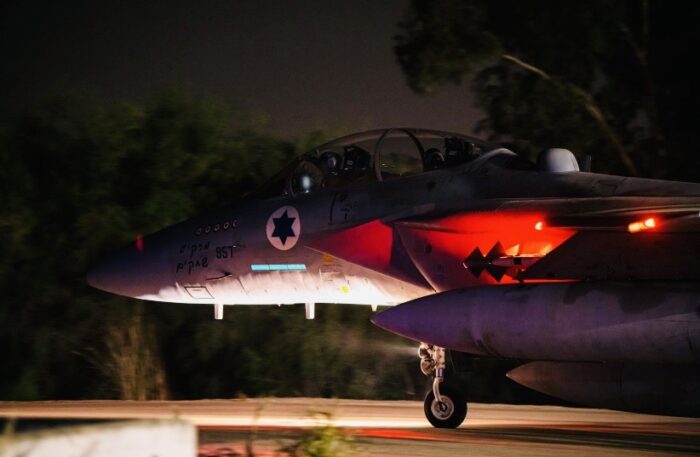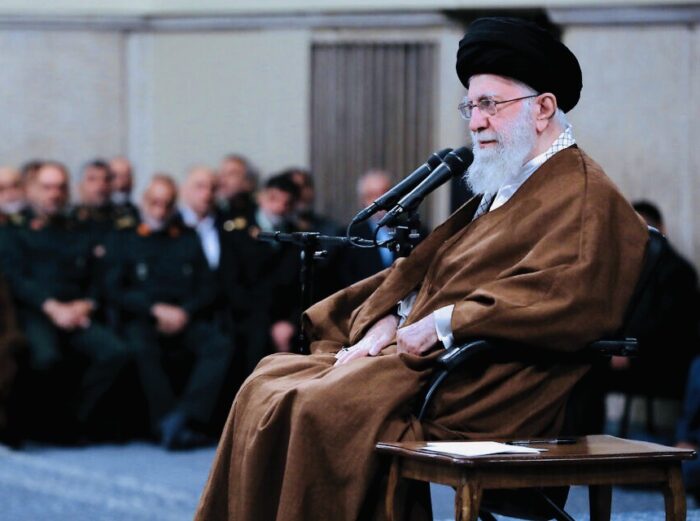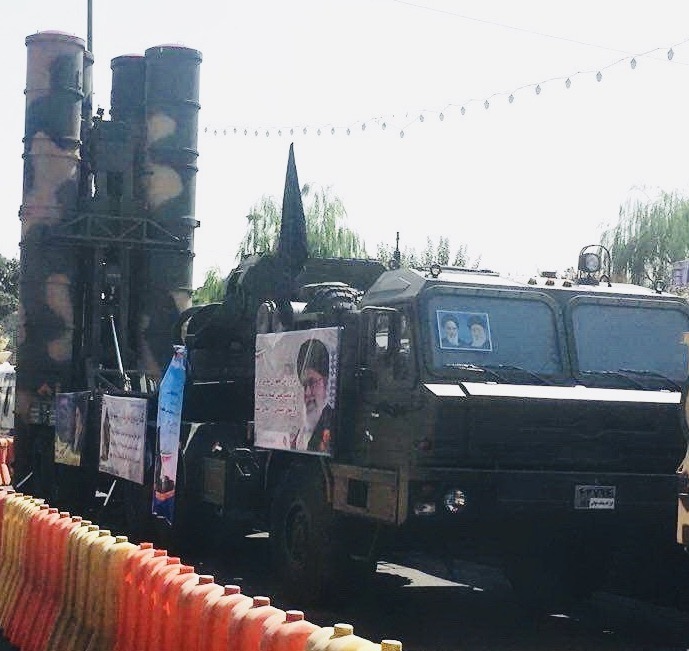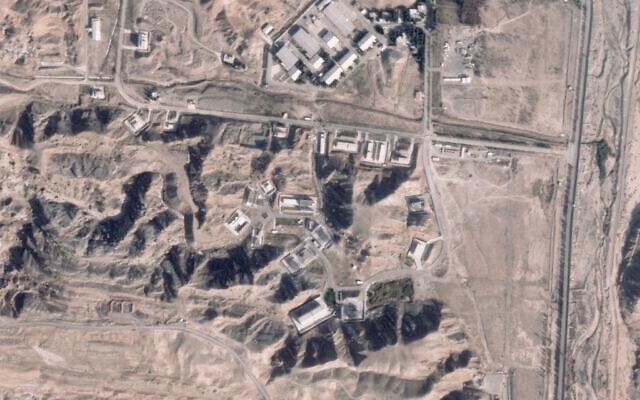Less than a day after Israel struck Iran in retaliatory air strikes, setting back Iran’s abilities to defend itself and build missiles, U.S. President Joe Biden chimed in, saying he hoped that the fourth round of Israeli-Iranian tit-for-tat attacks since April would be the last.
“I hope that this is the end,” he said, striking an optimistic tone.
It may well not be.
If Iran retaliates, as it might, Israel will likely strike back, pushing the region closer to a full-scale war.
Israel’s reprisal, which marked a new and probably more dangerous phase in Israel’s longstanding conflict with its greatest enemy, unfolded in three waves over a four-hour period in the early hours of October 26.

Israel bombed military sites, leaving oil and petrochemical production facilities and nuclear sites untouched in accordance with Biden’s request.
Yet, in a sharp departure from the past, Israel openly acknowledged its attack. Previously, when Israel and Iran were locked in a clandestine shadow war, neither side took public credit for hostile operations.
The Israeli government regarded its strikes as ample payback for Iran’s ballistic missile barrage on October 1, which caused little damage.
Defence Minister Yoav Gallant described them as the most significant mounted by the Israeli Air Force since the 1967 Six Day War, saying they had upended the balance of power in the Middle East and placed Iran at a “huge disadvantage” in future clashes.
Prime Minister Benjamin Netanyahu, addressing the Knesset’s winter legislative session, reported that Israel had “severely damaged” Iran’s air defence shield and missile manufacturing plants. “We struck them hard,” he said, claiming that Israel had not scaled back its strikes in deference to the United States. As he put it, “We make decisions ourselves according to our interests and considerations.”
The commander of Israeli forces, General Herzi Halevi, warned Iran to call it a day, saying that Israel was ready to bomb Iran’s military infrastructure yet again. “We used only a portion of (our) capabilities,” he said. “We can do much more … We’re ready for all scenarios …”
In general, as Jonathan Sacerdoti pointed out in The Spectator, the media in Iran downplayed the strikes, bombastically claiming that Israel had inflicted only minimal damage and was engaged in a campaign of psychological warfare.
“This pattern is consistent with Iran’s previous responses to strikes on its soil, as the regime seeks to maintain an image of stability and strength,” he wrote. “But past incidents have shown that Iran’s initial reports are often misleading, aimed at suppressing domestic concern and projecting resilience.”

Iran’s supreme leader, Ayatollah Ali Khamenei, warned in a Hebrew tweet on X that Israel had miscalculated and would soon realize the error of its ways: “The Zionist regime made a mistake. It erred in its calculations on Iran. We will cause it to understand what kind of strength, ability, initiative, and will the Iranian nation has.”
But in a measured aside, which should be taken far more seriously, he said that Israel’s attack “should neither be exaggerated nor downplayed,” thereby stopping short of calling for an immediate military response.
Iranian President Masoud Pezeshkian, a so-called moderate, said that Iran would “answer any stupidity with wisdom and strategy.”
The commander of the Islamic Revolutionary Guard Corps, Hossein Salami, was less subtle, claiming that Israel had “failed to achieve its ominous goals” and predicting that its strikes would unleash “unimaginable” and “bitter consequences.”
Iran’s defence minister, Aziz Nasir Zadeh claimed that Israel’s attack had caused only “minor” damage that has since been repaired.
Iranian Foreign Minister, in a letter to the United Nations, condemned Israel’s strikes as “unlawful and aggressive” and as a violation of Iran’s “sovereignty and territorial integrity.”
The latest reports suggest that Israel destroyed or degraded Iranian air defence batteries. This is significant. It means that Iran is now more vulnerable to Israeli attacks should the cycle of attacks and counter-attacks continue unabated.
Israel bombed air defence systems protecting a petrochemical complex in Bandar Imam Khomenei, oil refineries in Abadan, Tange and Bijar, and three missile manufacturing factories in Falagh, Shaid Ghadiri and Abdol Fath.
Iran acknowledged that Israel had targeted radar bases in Khuzestan, Ilam and Tehran.

By all accounts, Israel obliterated four S-300 air defence batteries, Iran’s most advanced systems. Iran bought them from Russia, an Iranian ally, and Russia, embroiled in a war with Ukraine, may be hard-pressed to replace them any time soon.
According to the Institute for the Study of War, Israel bombed 20 facilities around Tehran and western Iran, including vital air defence assets and facilities connected to the Iranian missile programs.
Israel also struck the Parchin facility outside Tehran, which has developed and manufactured advanced weapons, including solid-propellant ballistic missiles.
“The Parchin complex is one the most expansive and secretive Iranian missile production facilities,” the institute noted. It contains “sophisticated mixing machines used to make solid fuel for advanced ballistic missiles, such as those that Tehran has used to attack Israel directly.”
Iran will need to buy new mixers from China, a process that could take months or possibly a year or more, hampering Iran’s ability to replenish its missile stockpiles and those of its allies in the Axis of Resistance, namely Hezbollah, the Houthis in Yemen and the Islamic Resistance in Iraq.
The Parchin complex also has been used for high explosives testing in support of its nuclear weapons program, the institute says.

“International inspectors found traces of uranium there in 2015, indicating that a larger quantity of uranium was there at some point, despite Iranian officials denying that the complex was involved in nuclear activities. Although there are no known nuclear activities currently at the Parchin, the Israeli strikes could impede Iranian progress toward a nuclear weapon, given the role that (it) could play in building a delivery system.”
En route to Iran, the Israeli Air force reportedly bombed early warning radar bases and sensors in Syria and Iraq, which were supposed to give Iran advanced notice of an Israeli attack so that it could better defend itself.
This network has been downed, at least temporarily, along with air defence systems in Iran.
Which means that the next Israeli armed response to an Iranian retaliatory strike probably will be more destructive.
Iran should be under no illusions what an escalation of hostilities would entail.
